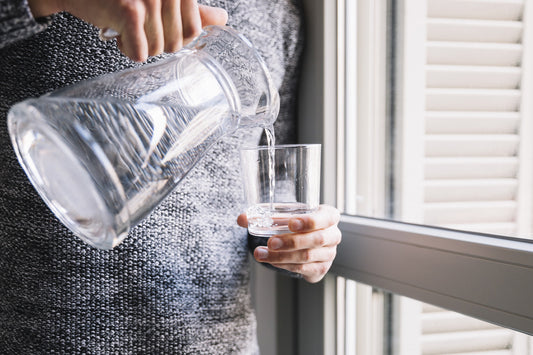Water is the essence of life. But what if the water you're consuming isn't as pure as you think? Enter the whole house water filtration system—a solution to ensure every drop you consume is free from contaminants.
Why Consider a Whole House Water Filtration System?
Importance of Clean Water
Water isn't just about quenching thirst. It's about ensuring that every cell in your body functions optimally. Clean water is vital for digestion, detoxification, and even mental clarity. But with increasing pollution, can we trust our taps?
Signs Your Home Needs a Filtration System
Ever noticed a filmy residue on your shower doors? Or perhaps your drinking water tastes a bit...off? These are signs that your home might benefit from a filtration system.

Choosing the Right Filtration System
Factors to Consider
From the size of your home to the quality of your local water supply, various factors come into play. It's not just about picking the most expensive filter; it's about choosing one that caters to your specific needs.
Popular Brands and Recommendations
While the video mentioned a specific brand, there are numerous reputable brands out there. Do your research, read reviews, and perhaps even consult with a local expert.
Step-by-Step Installation Guide
Pre-Installation Preparations
Before you dive in, ensure you have all the necessary tools and materials. This includes the filter, mounting brackets, and plumbing tools.
Tools and Materials Needed
A typical installation might require PEX adapters, ball valves, gauges, and of course, the filter itself. Always refer to the product manual for a comprehensive list.
Installation Process
Connecting to Your Water Supply
Start by shutting off your main water supply. Depending on your home, this could be at a well system or a water meter. Once done, you can begin connecting the filter to your main water line.
Setting Up a Bypass System
A bypass system is essential. It allows you to access unfiltered water when needed, especially if there's an issue with the filtration unit.

Photo by Gregory Beaty from Pixabay
Maintenance and Care
When to Replace Filters
Just installing a filter isn't enough. Regular maintenance ensures that it functions optimally. Keep an eye on the system's gauges. A significant difference in readings could indicate it's time for a change.
Troubleshooting Common Issues
Leaks? Reduced water pressure? These are common issues many face post-installation. Often, the solution is as simple as checking connections or replacing a worn-out filter.
Benefits of a Filtration System
Health Benefits
From reducing the risk of gastrointestinal diseases to ensuring your skin and hair remain healthy, the benefits are numerous.
Economic Benefits
Think of all the money you'll save on bottled water. Plus, appliances like water heaters function better and last longer with clean water, saving you on repair and replacement costs.

Image by macrovector on Freepik
Conclusion
A whole house water filtration system is more than just a luxury—it's a necessity in today's world. While the installation process might seem daunting, the benefits, both health-wise and economically, make it a worthy investment.
Frequently Asked Questions
How often should I replace my filter?
This depends on the brand and your water usage. However, regularly checking the system's gauges can give you an indication.
Can I install the system myself?
Yes, with the right tools and guidance, you can. However, if unsure, it's always best to consult with or hire a professional.
Is filtered water safe for pets?
Absolutely! If it's safe for you, it's safe for your furry friends.
What contaminants does a filtration system remove?
This varies by brand and model. However, most systems remove sediment, chlorine, and other common contaminants.
Will a filtration system affect water pressure?
If installed and maintained correctly, it shouldn't. However, if you notice a drop in pressure, it might be time to replace the filter.
Featured Image by senivpetro





